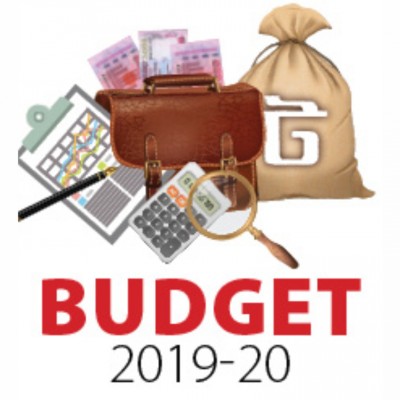Bank cards to be costlier

The cost for issuing new credit and debit cards will balloon 3-6 times after the government imposed fresh duty on the imported items, which the bankers say is conflicting with the Bangladesh Bank’s push towards a cashless society.
In the budget for fiscal 2019-20 unveiled on June 13, there was a fresh tariff of $0.70 on each magnetic stripe card import, $2 for chip-and-pin card and $3 for contactless card.
There was no declared tariff rate on the imported cards, but the Customs Department commonly imposed a maximum of $0.52 on each card, according to an official of the National Board of Revenue.
“Given the government and the central bank’s push for making a cashless society the new rates are completely illogical,” said Syed Mahbubur Rahman, chairman of the Association of Bankers, Bangladesh, a platform of private banks’ managing directors.
The move will discourage clients from asking for credit and debit cards as banks will be compelled to impose charges for issuing them.
“The ABB will approach the authority concerned within a day or two to withdraw the duty,” he added.
Thanks to the duty a magnetic stripe card will cost Tk 120-Tk 125 in contrast to Tk 20-Tk 25 at present, said Jubayer Hossen Sayem, managing director of Lark Technologies, one of the major card importers.
For a chip-based card, the cost of import will stand at Tk 370, up from Tk 100-Tk 120. The cost of contactless credit card will escalate by more than three times to Tk 550.
As much as 25-30 lakh cards are usually imported by the local companies per year to meet the domestic demand, Sayem said.
The local banks are highly dependent on imports as only one company in Bangladesh has the accreditation of Visa to manufacture the cards, said Rahman, also the managing director of Dhaka Bank.
The company’s capacity is limited, he said, adding that it has yet to manage certification from Visa to manufacture contactless cards.
“No local company has so far taken authorisation from Mastercard, American Express, JCB and other global companies to produce their cards. So, the new duty has become a big blow for the banking sector,” he said.
If a company wants to manufacture the cards locally more than $100,000 must be paid as royalty and audit fees every year to card issuers like Visa, Mastercard, Nexus and so on, said an official of a bank with knowledge of the matter.
The local company will have to churn out nearly 1 crore cards to break-even and it is tough given the volume of the country’s card market, he said. “The government will not manage large amounts of revenue by way of imposing the new duty. But, it will have adverse impact on the country’s journey towards becoming a cashless society,” said Shafiqul Alam, managing director of Jamuna Bank.
The new tariff may encourage consumers to go back to conventional methods, said Syed Mohammad Kamal, country manager of Mastercard Bangladesh.
The country has already moved to chip-and-pin cards and is gradually moving to contactless cards.
An increase in the cost of cards will be a roadblock to bringing in innovation to payment methods.
He went on to urge the finance ministry and the NBR to look into this matter and help digital payments grow as it will ensure greater transparency, bring innovation in payments and create more financial inclusion, he said.
